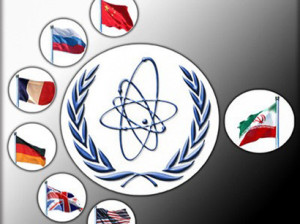By Pramod Raj Sedhain.
Despite deep differences over Tehran’s nuclear program, the six international power nations have come closer than never before. The P5+1 nations (Britain, China, France, Russia, the United States and Germany, plus Iran) have settled some of the significant issues but differences on some issues still remain. Both sides are keen on finalizing the 12-year standoff over the Iran’s nuclear program. Two deadlines to strike a deal have already been missed and broader negotiation deadline draws closer. U.S.-Iran top diplomats held intensive and lengthy discussions to reach an agreement over the 15 months of standoff with a third set for the end of March. Without successfully conclusion of the political agreement of principles, it will not govern the comprehensive deal but attainment of an agreement within the deadline seems not easy.
The ongoing negotiation between the two sides has narrowed down the differences with significant progress. However, the scale of Iran’s uranium enrichment and the timetable for the lifting of Iran’s sanctions are still disputed issues. Iran has suspended some of its enrichment programs while the United States extended the November 2014 deadline to till June, 30 2015. Iran wants to lift sanctions swiftly and demanded to own its uranium enrichment capability.
Likewise, the U.S is in favor of gradual lift of the sanction. Tehran and the six world powers failed to work out a permanent nuclear deal within November 2014 deadline. But there are issues that need to be addressed. In November 2013, Iran and the world powers signed the interim deal in Geneva. They decided to extend the deadline to reach a high-level political agreement by March 1 and to come up with a complete technical detail of the agreement by July 1.
Iran and western nations are seeking to seal a high-profile deal that means a high opportunity and challenge to both U.S. and Iran. Despite the hard- liner’s objection, Iranian nuclear decision-making process is very clear after Iran’s Supreme Leader Ayatollah Ali Khamenei expressed optimism over the final deal. U.S. President Barack Obama too is committed towards reaching a final deal on the issue. The government is the supreme authority to trustworthiness but the challenges it to neutralize some of domestic upsets and other scenario.
U.S. and Iran’s negotiators have been trying to find out a pragmatic deal to avoid any future destructive war in the Middle East. In the U.S., 46 Republican senators signed against the Iran’s nuclear deal but different polls suggest that the Americans want to reach a deal with Iran’s nuclear program. A recent CNN/ORC poll shows sixty-eight percent of Americans favor the ongoing negotiations. Likewise, a recent survey of University of Maryland’s Program for Public Consultation Polls suggests that not only Democrats but even the Republicans in the Congress are in favor of the deal. Only 36 percent favored increasing sanctions in an effort to end the program.
Negotiations between United States and Iran were never better in the past. But the time has changed with Iran led by reformist President Hassan Rouhani who is the former head of nuclear negotiating team (2003-2005). During the Iran’s former reformist president, Mohammad Khatami’s period EU 3 – Britain, France and Germany insisted to resolving the nuclear deal but did not succeed. President George W Bush blamed Iran as a part of an “axis of evil.”
Iran branded U.S. as a “Great Satan”. Despite the harsh rhetoric, Bush’s administration also made efforts to deal on Iran’s nuclear program. Even hardliner past President Bush had changed his previous policy and told the UN General Assembly, “We work toward diplomatic solution on this crisis and as we do live in freedom, America and Iran can be good friends and close friends for peace”. He also wanted mutual gestures and tactical partnership in Afghan war in 2001 and Iran war in 2003.
Iran’s hardliner President Mahmoud Ahmadinejad replaced experienced nuclear negotiator, Ali Larijani. Ali Larijani had held intensive and diplomatic talks with EU foreign policy chief. Larijai also visited Europe to New York for negotiation efforts. In New York, he met with EU as well Russian and Chinese foreign ministers. He also held first-ever direct talks with US foreign Secretary Condoleeza Rice before the General Assembly started. Iran’s new open-minded government’s start of pragmatic ability is a good gesture for a compressive deal. U.S. too wants diplomatic solution rather than another costly and bloody war.
It is too early to say that Iran’s nuclear deal will reach a conclusion since swift lift of sanctions depends upon Iran’s steps. Despite the cold relations, West and Iran have been open a secret channel of communication and both sides need to seek rapprochement of their relations. Relationship between the two sides is interesting because of the mentality of psychological war. Interestingly, both sides want to implement their respective agenda and influence in the region.



